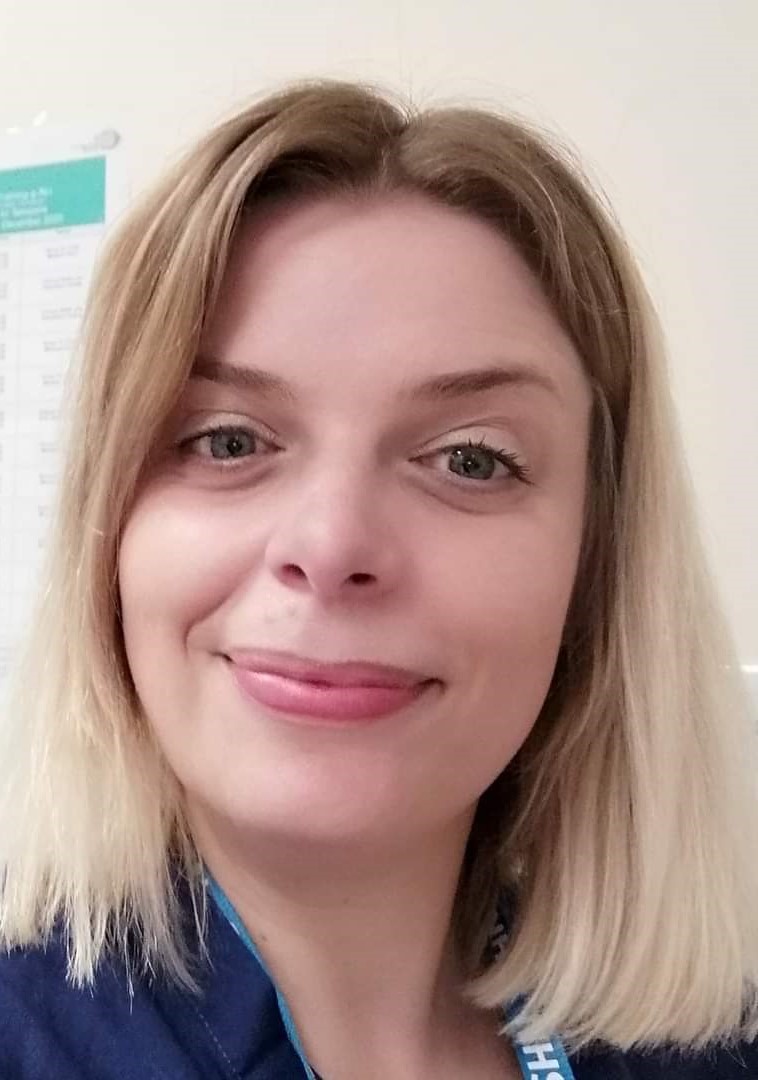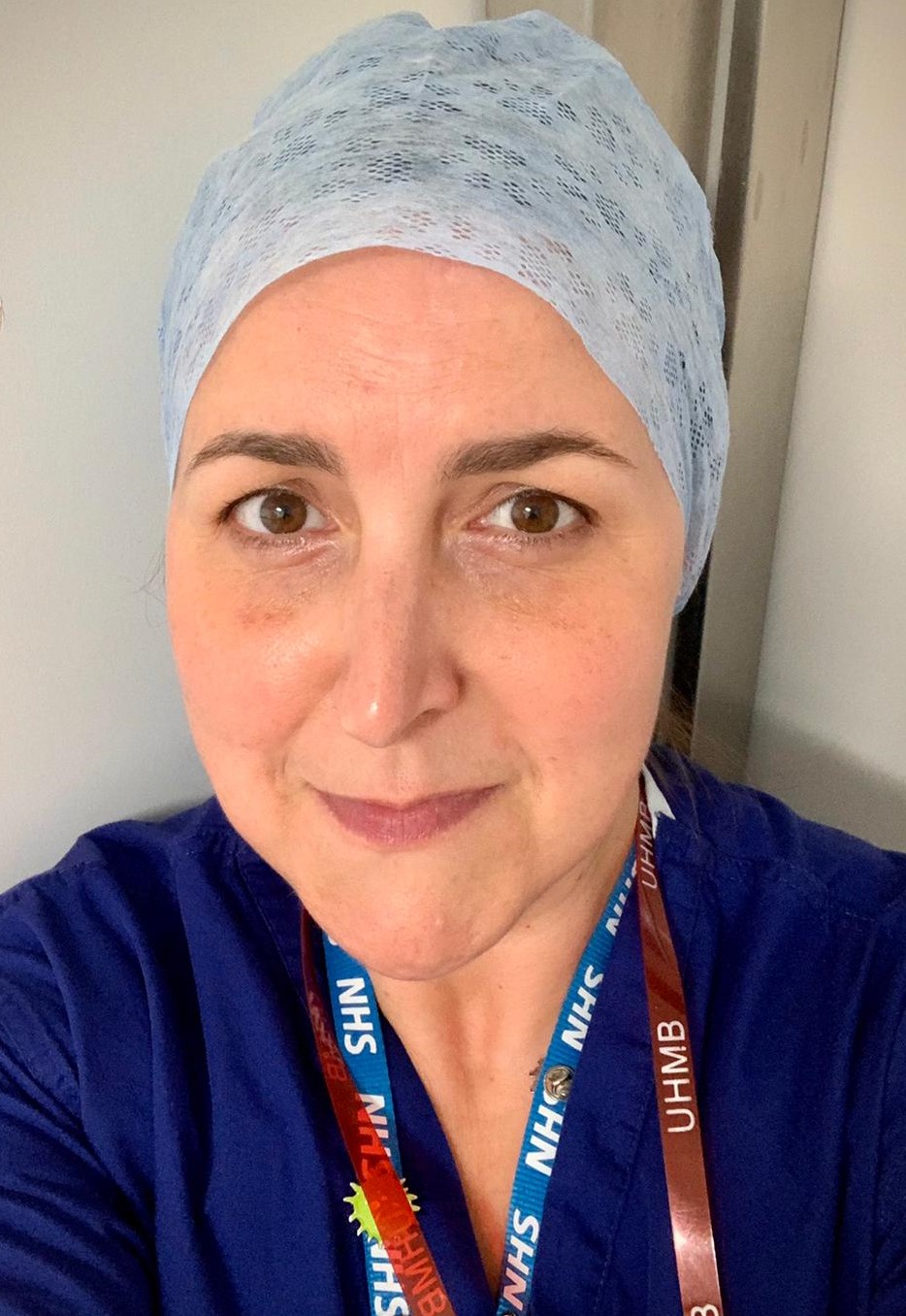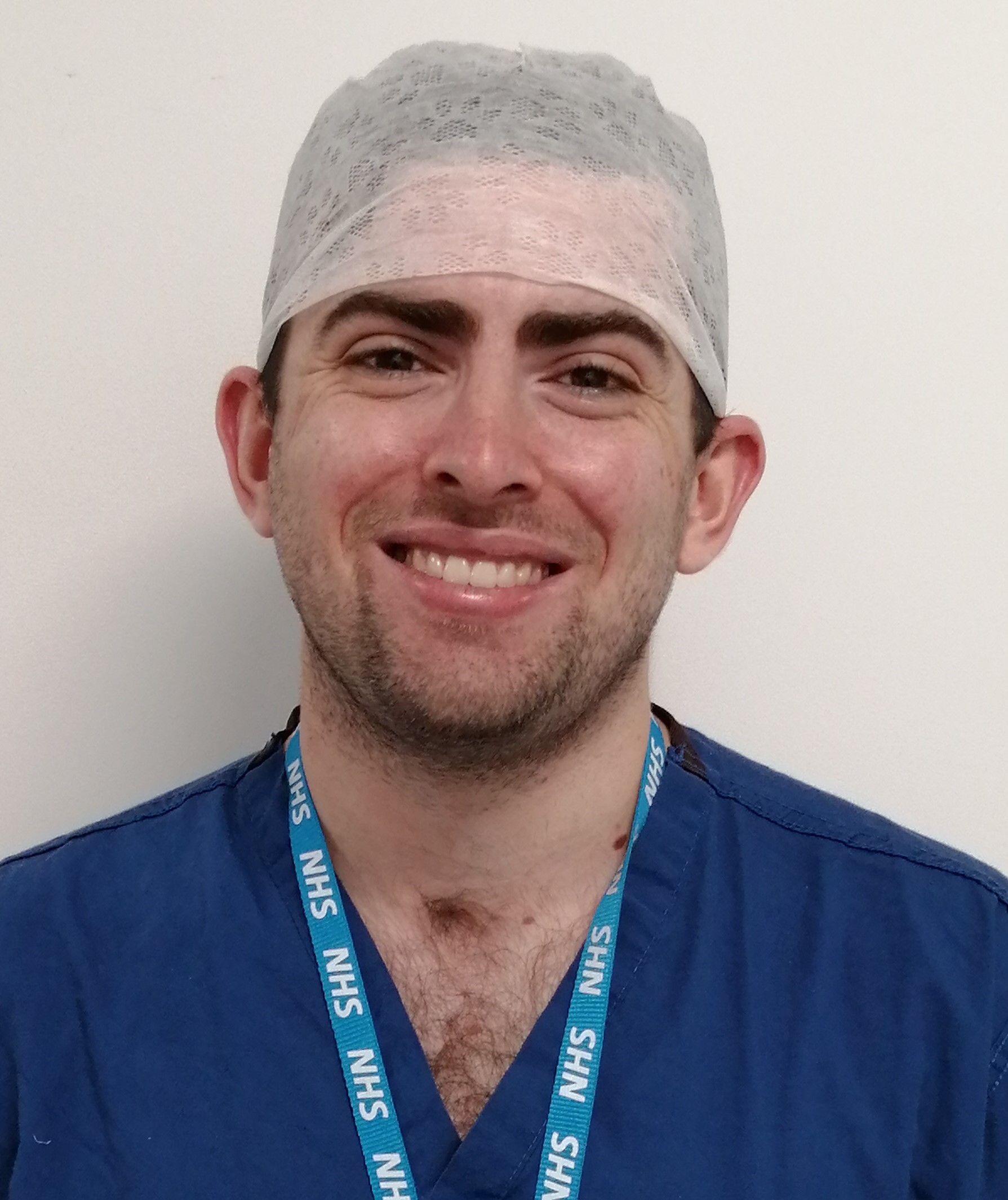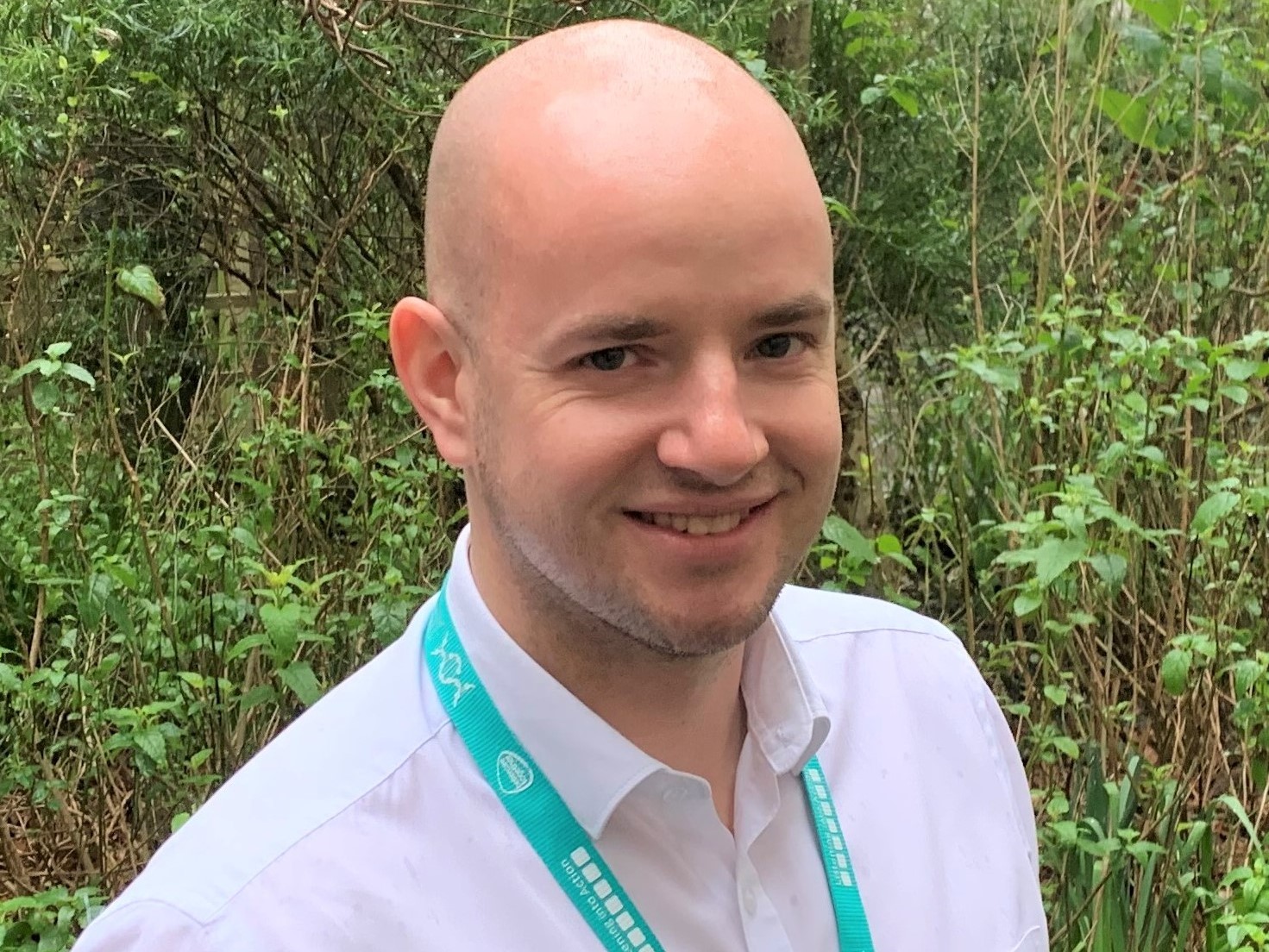 Highly skilled and compassionate Operating Department Practitioners (ODPs) at University Hospitals of Morecambe Bay NHS Foundation Trust (UHMBT) are sharing their love of the job to mark National ODP Day on Friday 14 May.
Highly skilled and compassionate Operating Department Practitioners (ODPs) at University Hospitals of Morecambe Bay NHS Foundation Trust (UHMBT) are sharing their love of the job to mark National ODP Day on Friday 14 May.
Operating Department Practitioner Day celebrates the work of ODPs which is mostly ‘behind-the-scenes’ and less well known than professions such as Nursing.
Laura Armitage, 41, an ODP and Clinical Theatre Manager at the Royal Lancaster Infirmary (RLI), loves her job and is eager to share why it is such a great career. There are also ODPs working across the UK in theatres including Furness General Hospital (FGH) and Westmorland General Hospital (WGH).
ODPs such as Laura are one of the first people patients see when they are about to have surgery and when they are in the post-operative recovery period at hospital. ODPs at UHMBT treat patients with great kindness, compassion, care and professionalism. They work closely with Anaesthetists, Clinical Support Workers, Surgeons and Nurses before, during and after surgery to ensure that patients receive the highest levels of safe and compassionate care.
Laura said: “I love working as an ODP; it’s a fantastic job and there is such great camaraderie in the team. We provide one-to-one care for patients which is really rewarding. Although I have been a Theatres Manager for a few years, I still do clinical work and enjoy every minute of it. I feel very privileged to be an ODP.”
Laura started training to be an ODP with the Trust in 2002 after completing a BTEC Public Services Course at Lancaster and Morecambe College in 1998 and then working with young adults with special educational needs at Beaumont College in Lancaster.
She finished the three-year University of Central Lancashire ODP course in 2005 and started working for the Trust. Anyone interested in becoming an ODP would now be required to complete an ODP Degree course offered by various universities across the UK.
Laura said: “When I first saw the job advertised in the local paper, I didn’t really know what it involved but I thought it looked interesting.
“There’s a joke among ODPs that being an ODP is ‘probably the best job you’ve never heard of!’ Not a lot of people know what we do and we often have to explain our role in theatre.
 “I had all of my practical training in Theatres at the RLI. The ODP degree is equivalent to the Nursing Degree. ODPs are trained in all aspects of theatre practice.”
“I had all of my practical training in Theatres at the RLI. The ODP degree is equivalent to the Nursing Degree. ODPs are trained in all aspects of theatre practice.”
Operating Theatres have to follow strict national guidelines in terms of staffing. There are always at least seven people in the Operating Theatre when an operation is taking place. It’s a 24-hour service with shift work and colleagues also take turns to be ‘on call’ at night.
During the COVID-19 pandemic some surgical work had to be put temporarily on hold and now surgical services are all back up and running at UHMBT.
Laura said: “We were very anxious early on in the pandemic as everything was unknown, but everyone stepped up. In the space of 24 hours we implemented an emergency rota to cope with the influx of patients, overnight theatres became Intensive Care. We had to quickly adapt to new ways of working.
“I’m so proud of what we did as a department. If there was another emergency, I know that everyone would do the same again. They are absolutely amazing. This is the great thing about working in theatres; we put patients first but we also look after each other.”
The Theatres Service is now extremely busy catching up with the backlog and colleagues are working hard to make sure patients are seen as soon as possible.
The ODP role covers three main areas of work - Anaesthetics, Scrub and Recovery.
Laura explained: “Every Anaesthetist has to have an ODP or Anaesthetic Practitioner working alongside them as a matter of course. The range of tasks and responsibilities is extensive. It’s a highly methodical process. We have to prepare for every eventuality.
“When a patient comes to the Theatre, we are there to give support and reassurance. We understand that patients can feel very vulnerable and our job is to help them feel safe and well looked after. We always treat patients with respect and ensure that their dignity is preserved.
 “I know from speaking to my colleagues that we all feel that being an ODP is a very privileged job to have. When you are going to have surgery, it can be one of the most important days in your life. It’s a privilege to be there for them. We always put our patients first in everything we do.”
“I know from speaking to my colleagues that we all feel that being an ODP is a very privileged job to have. When you are going to have surgery, it can be one of the most important days in your life. It’s a privilege to be there for them. We always put our patients first in everything we do.”
Laura said ODPs scrub up alongside Surgeons and are present throughout every operation. The ODP in the scrub role is there to equip the surgeon with everything they need. They are also responsible for all of the surgical instruments, swabs and sutures during the operation as well as making sure that everything is accounted for.
Laura said: “We have to be able to concentrate for long periods of time and anticipate any issues. It becomes almost second nature. Sometimes it’s as if we can read each other’s minds. That’s the perfect scenario – knowing what a colleague needs even before they ask for it. We build up a great rapport with the team as we are all working very closely together, sometimes under pressure. We rely on each other and trust each other. We all work as a team; it’s fantastic.”
The post-operative recovery aspect of the ODP role is also very rewarding for Laura and her colleagues.
Laura said: “We are trained to provide one-to-one post-operative care. Some patients can be in recovery for a few hours and for others it can take longer. We have very specific discharge criteria for when people can leave our care. We always ensure patient safety and make sure patients are fit to leave our care. We are lucky because we can focus 100 per cent on the person.”
One of Laura’s colleagues, Sarah Cotton, an ODP in Theatres at the RLI, said: “A day in the life of an ODP can be high paced and unpredictable.
“There’s a huge amount of satisfaction gained when your hard work results in a positive outcome for the patient. I love that this job is so varied. You never know what the day may bring.”
Liam Walker, a Student ODP in Theatres at the RLI, said: “Learning to be an Operating Department Practitioner gives me the knowledge to work confidently in the operating theatre; an area that people just don't see.
“I support patients when they are feeling vulnerable and always provide the very best care. I am looking forward to qualifying and starting my career.”
 Danny Bakey, Transformational Lead for Theatres at UHMBT, said: “As someone who is trained as an ODP, I am incredibly proud of the all of the ODPs working within our Trust.
Danny Bakey, Transformational Lead for Theatres at UHMBT, said: “As someone who is trained as an ODP, I am incredibly proud of the all of the ODPs working within our Trust.
“Our ODPs perform a crucial role in our Surgical Teams and are constantly going above and beyond the call of duty for our patients. They care for patients at some of the most vulnerable times in their lives and I witness their compassion on a daily basis. Their dedication and professionalism have continued to shine through during the COVID-19 pandemic.
“I’m delighted that we are celebrating the work of our ODPs as the whole country is celebrating ODPs Day. It’s a massively rewarding profession and I’d recommend it to anyone.”
You can follow National ODP Day on Twitter at #ODPday

